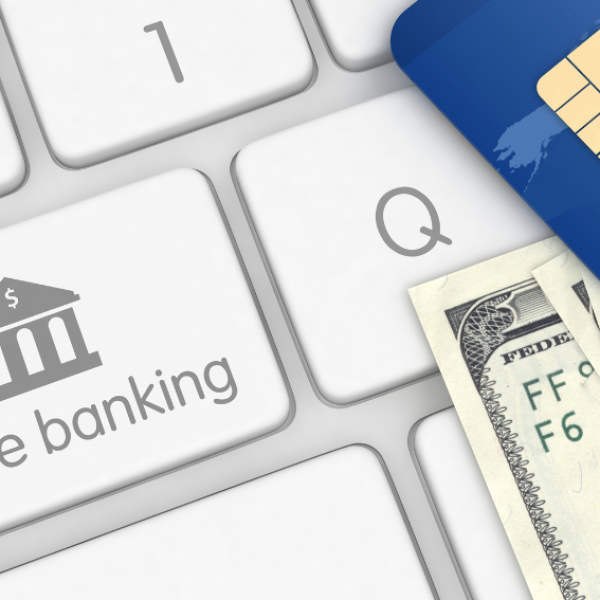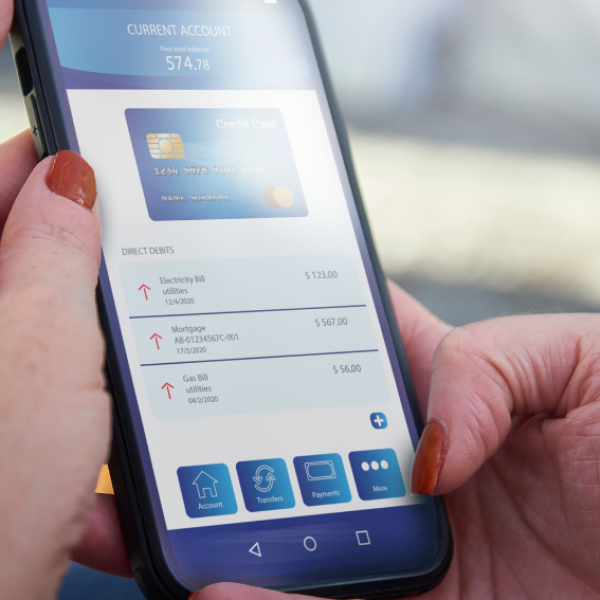Merchant accounts are a vital part of running a business, enabling companies to accept credit and debit card payments from their customers. However, the costs associated with these accounts can add up quickly, impacting profit margins. Finding the cheapest merchant account providers can help reduce expenses while ensuring reliable payment processing.
This guide dives into the most affordable options, key features to look for, and strategies for selecting the right provider for your business.
In This Article
ToggleWhat Is a Merchant Account?
A merchant account is a specialized business account that enables merchants to accept and process payments made via credit and debit cards. It serves as a crucial intermediary in the payment process, ensuring that funds are transferred securely and efficiently between the customer’s bank and the merchant’s bank. Whether transactions occur in person, online, or through mobile payments, a merchant account is an essential tool for modern businesses.
How Does a Merchant Account Work?
When a customer pays with a credit or debit card, the transaction doesn’t immediately transfer funds to the merchant’s bank account. Instead, the payment is temporarily held in the merchant account until it is authorized, processed, and settled. This ensures all necessary checks are completed, such as verifying available funds and preventing fraudulent activities.
Merchant accounts are typically provided by payment processors, banks, or independent sales organizations (ISOs) and are often bundled with additional tools and services that enhance the payment experience.
Key Functions of a Merchant Account

Merchant accounts play a pivotal role in the payment processing ecosystem. Below are their primary functions:
1. Authorization
Authorization is the first step in any card transaction and involves verifying the customer’s payment details.
How It Works:
When a customer initiates a payment, their card information is sent to the payment processor, which communicates with the cardholder’s bank (the issuing bank). The issuing bank checks whether the account has sufficient funds or available credit and whether the card details are valid.
Why It’s Important:
Authorization ensures that the payment can proceed without issues like insufficient funds or a blocked card, reducing the risk of failed transactions.
2. Processing
Processing is the stage where the transaction data is transmitted securely and verified.
How It Works:
Once authorized, the payment processor encrypts and transfers the transaction details to the appropriate parties, including the card networks (e.g., Visa, Mastercard). The card networks ensure the transaction complies with their rules and pass the information to the issuing bank.
Why It’s Important:
Secure processing prevents unauthorized access to sensitive payment data, protecting both the merchant and the customer from fraud. This stage also confirms the validity of the transaction, ensuring compliance with industry standards like PCI DSS (Payment Card Industry Data Security Standard).
3. Settlement
Settlement is the final step, where funds are transferred from the customer’s bank to the merchant’s account.
How It Works:
After the transaction is processed and approved, the issuing bank releases the funds to the acquiring bank (the merchant’s bank). From there, the money is deposited into the merchant’s bank account, minus any fees charged by the payment processor.
Why It’s Important:
Settlement ensures that merchants receive their payments promptly, enabling them to maintain cash flow for operational expenses like payroll, inventory, and utilities.
Additional Services Bundled with Merchant Accounts
Many merchant accounts come with value-added services that streamline payment processing and enhance security. These services include:
1. Payment Gateways
Payment gateways are essential for online transactions, acting as a virtual terminal that connects a merchant’s website to the payment processor. They encrypt sensitive card data and facilitate seamless online payments.
- Examples: Popular payment gateways include Stripe, PayPal, and Authorize.net.
2. Fraud Prevention Tools
Fraud prevention tools protect merchants from chargebacks and unauthorized transactions. These tools include:
- Address Verification System (AVS): Matches the customer’s billing address with the one on file with the issuing bank.
- Card Verification Value (CVV): Verifies the three- or four-digit code on the card to ensure the customer possesses it.
3. Analytics Dashboards
Advanced analytics dashboards help merchants track transaction trends, identify peak sales periods, and monitor chargebacks. This data-driven approach enables businesses to make informed decisions about pricing, marketing, and customer retention.
Benefits of a Merchant Account
1. Expanded Payment Options
Merchant accounts allow businesses to accept a wide range of payment methods, including:
– Credit and debit cards.
– Digital wallets (e.g., Apple Pay, Google Pay).
– Contactless payments.
2. Improved Customer Experience
With fast and secure payment options, merchant accounts enhance the customer experience, encouraging repeat purchases and building loyalty.
3. Enhanced Cash Flow
By ensuring quick settlement of funds, merchant accounts improve cash flow, enabling businesses to cover operational expenses efficiently.
4. Scalability
Merchant accounts are scalable, supporting growing businesses as they expand into new markets or adopt additional payment methods.
Factors That Affect Merchant Account Costs

Understanding the components of merchant account pricing is essential to evaluating providers and selecting the most cost-effective option for your business. Each fee type adds to the overall cost of maintaining a merchant account, and knowing how these fees are structured can help you make informed decisions and negotiate better terms.
1. Transaction Fees
Transaction fees are charged for each payment processed through your merchant account. These fees typically consist of a percentage of the transaction amount plus a fixed fee.
- How It Works: For example, a transaction fee of 2.6% + $0.10 means that for a $100 transaction, the merchant would pay $2.70 ($2.60 as a percentage of the transaction amount plus $0.10).
- Impact on Businesses: Larger businesses with high transaction volumes often qualify for lower rates because they bring more revenue to the payment processor. Conversely, small businesses or those with fewer transactions may pay higher fees.
- Flat vs. Percentage Fees: Some providers offer flat rates for simplicity, while others charge a percentage based on the card type or transaction method (e.g., swiped, keyed, or online).
Pro Tip: Negotiate transaction fees if your business processes a high volume of sales, as small reductions in rates can lead to substantial savings.
2. Monthly Fees
Monthly fees are fixed charges imposed by some merchant account providers to cover account maintenance and related services.
- What They Cover: Monthly fees often include customer support, reporting tools, and access to fraud prevention features.
- Fee Variability: Some providers, like Square and PayPal, eliminate monthly fees entirely, making them attractive to small businesses. However, others may charge monthly fees starting at $10 or higher, depending on the level of service offered.
- Considerations for Seasonal Businesses: For businesses with seasonal sales, monthly fees can accumulate during off-peak months, even when transactions are minimal.
Pro Tip: If your business has inconsistent sales, look for providers with no monthly fees or those offering flexible pricing plans.
3. Interchange Fees
Interchange fees are set by card networks like Visa and Mastercard and passed to the merchant through the payment processor.
- How They’re Determined: These fees vary based on the type of card used (credit vs. debit), the transaction method (swiped vs. online), and the business’s risk profile. For example, swiped transactions generally incur lower interchange fees than manually keyed or online transactions.
- Impact on Costs: While interchange fees are unavoidable, they can be minimized by selecting a processor with competitive pricing models like interchange-plus pricing.
Pro Tip: Review the interchange rates associated with different card types to understand how they affect your overall costs.
4. Additional Charges
Additional charges can significantly affect the total cost of a merchant account, especially for businesses that are unaware of them.
- Setup Fees: Some providers charge a one-time setup fee to establish your account, which can range from $50 to $200.
- PCI Compliance Fees: These fees ensure that your business adheres to data security standards. They can range from $10 to $30 per month, depending on the provider.
- Chargeback Fees: If a customer disputes a transaction, you may be charged a fee, typically $15 to $25 per incident, regardless of the outcome.
- Early Termination Fees: Providers may charge a penalty for closing your account before the end of your contract, which can range from $100 to several hundred dollars.
Pro Tip: Always read the fine print of your merchant agreement to identify and plan for additional fees.
Top Cheapest Merchant Account Providers
Here’s a closer look at the most affordable merchant account providers, based on pricing, features, and overall value. Each provider caters to different business needs, making it easier to find a solution that fits your specific requirements.
1. Square
Square is a top choice for small businesses and startups, offering free setup and no monthly fees.
- Transaction Fees: 2.6% + $0.10 per swiped transaction; 3.5% + $0.15 for manually entered transactions.
- Best For: Small businesses, pop-up shops, and service providers.
Key Features:
– Free POS hardware for new accounts.
– Simple pricing with no hidden fees.
– Seamless integration with Square’s ecosystem, including inventory management and analytics tools.
- Why It’s Affordable: Square eliminates monthly fees, making it an excellent choice for businesses with low or inconsistent sales volumes.
2. Helcim
Helcim is renowned for its transparent pricing and lack of hidden fees, making it ideal for businesses with moderate to high transaction volumes.
- Transaction Fees: Interchange + 0.3% + $0.08.
- Best For: E-commerce and retail businesses.
Key Features:
– Volume-based discounts for high transaction volumes.
– No monthly fees or cancellation fees.
– Advanced tools for invoicing, recurring billing, and reporting.
- Why It’s Affordable: Helcim’s pricing model scales with your business, offering significant savings as your transaction volume increases.
3. Payment Depot
Payment Depot operates on a membership-based model, providing wholesale rates for significant savings.
- Transaction Fees: Interchange + $0.15.
- Membership Fee: Starting at $49/month.
- Best For: High-volume businesses seeking wholesale pricing.
Key Features:
– Transparent pricing with no hidden markups.
– Free reprogramming of existing equipment.
– 24/7 customer support for quick issue resolution.
- Why It’s Affordable: For businesses processing large volumes of transactions, Payment Depot’s wholesale pricing can result in substantial savings over time.
4. PayPal
PayPal is a user-friendly, cost-effective solution for freelancers and online businesses.
- Transaction Fees: 2.9% + $0.30 for online payments; 2.7% for in-person payments.
- Best For: Freelancers, online businesses, and international transactions.
Key Features:
– No monthly fees or long-term contracts.
– Easy integration with e-commerce platforms like Shopify and WooCommerce.
– Multi-currency support for global transactions.
- Why It’s Affordable: PayPal’s no-monthly-fee structure and ease of use make it a popular choice for small-scale operations.
5. Stax by Fattmerchant
Stax offers predictable, subscription-based pricing, ideal for businesses with consistent sales volumes.
- Transaction Fees: Interchange only.
- Monthly Fee: Starting at $99/month.
- Best For: Mid-sized businesses and enterprises.
Key Features:
– Unlimited transactions with no additional per-transaction fees.
– Robust analytics and reporting tools.
– Integration with popular accounting software like QuickBooks.
- Why It’s Affordable: Stax eliminates per-transaction fees, making it cost-effective for businesses with steady, high-volume sales.
6. Chase Payment Solutions
Chase combines competitive pricing with seamless integration for businesses using Chase bank accounts.
- Transaction Fees: Custom pricing based on business needs.
- Best For: Retail businesses and professional services.
Key Features:
– Same-day deposits for Chase account holders.
– Fraud prevention tools to reduce chargebacks.
– 24/7 customer support for quick issue resolution.
- Why It’s Affordable: Chase’s tailored pricing and same-day deposits enhance cash flow while reducing operational costs.
How to Choose the Cheapest Merchant Account Provider

1. Assess Your Business Needs
Understanding your business’s unique requirements is the first step toward selecting the right merchant account provider. A provider’s suitability largely depends on your transaction volume and the payment methods your customers prefer.
Transaction Volume
- For high-volume businesses, pricing models like interchange-plus are often more cost-effective, as they offer lower per-transaction fees. For example, a large retailer processing thousands of transactions monthly can save significantly with this model.
- Smaller businesses with fewer transactions may benefit more from flat-rate pricing, which simplifies costs and avoids surprises.
Payment Methods
- Evaluate whether the provider supports the payment methods your customers prefer, such as online, in-person, or mobile payments. For instance, a brick-and-mortar store will need robust POS hardware, while an online retailer requires a seamless payment gateway.
- Providers like Square and Stripe are known for offering versatile payment options, catering to both physical and digital transactions.
Pro Tip: Analyze your sales patterns to identify peak transaction periods and ensure the provider can handle volume spikes without triggering excessive fees or holds.
2. Understand Pricing Models
Merchant account providers typically offer different pricing models, each suited to specific business types and transaction patterns. Understanding these models helps you choose the one that aligns with your needs.
Flat-Rate Pricing
- Best for small businesses with low transaction volumes, flat-rate pricing charges a consistent percentage for every transaction, regardless of card type or method.
- Example: PayPal charges 2.9% + $0.30 for online transactions. This predictability makes it ideal for businesses that value simplicity over cost savings.
Interchange-Plus Pricing
- This model separates interchange fees (set by card networks) from the processor’s markup, offering transparency and scalability.
- Example: Helcim charges interchange + 0.3% + $0.08 per transaction. This pricing is cost-effective for growing businesses that process higher volumes.
Membership-Based Pricing
- Providers like Payment Depot charge a flat monthly fee and pass on wholesale interchange rates. This model is ideal for high-volume businesses that benefit from reduced transaction fees.
Pro Tip: Calculate your average monthly sales and transaction volume to simulate costs under each pricing model. Choose the one that minimizes expenses while providing the flexibility to scale.
3. Factor in Additional Costs
While transaction fees are a significant part of merchant account costs, additional charges can add up quickly and affect your total cost of ownership.
- Monthly Fees: Some providers, like Stax, charge a flat monthly fee starting at $99. This fee often includes advanced analytics, fraud prevention tools, and customer support. However, if your sales are inconsistent, monthly fees may not be cost-effective.
- PCI Compliance Charges: Ensuring your business adheres to Payment Card Industry (PCI) standards often incurs monthly or annual fees, ranging from $10 to $30. These fees safeguard customer data and reduce fraud risks.
- Equipment Costs: Physical card readers, POS terminals, or mobile payment devices can cost anywhere from $100 to $1,000, depending on the sophistication of the hardware.
- Chargeback Fees: Disputed transactions can result in fees of $15 to $25 per incident, which can accumulate if disputes are frequent.
Pro Tip: Always read the fine print in merchant agreements to identify hidden costs. Ask for a breakdown of fees during the evaluation process to avoid unexpected charges.
4. Evaluate Features
Beyond cost, the features offered by a merchant account provider can significantly impact your business operations and customer experience.
- Next-Day Funding: Providers like Chase Payment Solutions offer same-day or next-day deposits for account holders, ensuring steady cash flow.
- Fraud Prevention Tools: Features like Address Verification Systems (AVS) and Card Verification Value (CVV) checks help reduce fraud and chargebacks.
- Analytics Dashboards: Advanced reporting tools, available with providers like Helcim and Stax, enable you to track transaction trends, identify peak sales periods, and optimize operations.
- Customer Support: Reliable customer support is critical for resolving payment issues quickly. Look for providers offering 24/7 assistance.
Pro Tip: Prioritize features that align with your business goals. For instance, a retail store may value POS hardware integration, while an online business prioritizes robust fraud prevention tools.
5. Read Reviews and Testimonials
Researching customer feedback is an excellent way to gauge the reliability and reputation of a merchant account provider.
- Look for Patterns: Consistent complaints about hidden fees, fund holds, or poor customer support are red flags. Conversely, frequent praise for transparency and responsiveness indicates a reliable provider.
- Ask for References: Some providers offer references from businesses in your industry, giving you direct insights into their performance and customer satisfaction.
- Use Trusted Review Platforms: Check platforms like Trustpilot, Capterra, or Google Reviews to gather unbiased opinions from other merchants.
Pro Tip: Join industry forums or networking groups to ask peers about their experiences with specific providers.
Tips to Minimize Merchant Account Costs
Selecting the cheapest merchant account provider is only part of the equation. Implementing cost-saving strategies ensures that you optimize expenses over the long term.
1. Negotiate Fees
Many providers are willing to lower fees for businesses that process high transaction volumes. For example, you can negotiate for lower transaction rates or waive certain monthly fees if your sales exceed a specific threshold.
Action Tip: Highlight your transaction history and anticipated growth during negotiations to secure favorable terms.
2. Monitor Transactions
Regularly review your transaction statements to identify unnecessary charges, discrepancies, or fees for unused services.
Action Tip: Use analytics dashboards offered by providers like Helcim to monitor payment activity and optimize performance.
3. Reduce Chargebacks
Implement fraud prevention tools like AVS and CVV checks and provide clear return policies to avoid disputes that lead to chargeback fees.
Action Tip: Train staff on handling customer complaints proactively to resolve issues before they escalate into disputes.
4. Choose the Right Pricing Model
Match your sales volume and transaction types to the appropriate pricing model. For example, high-volume businesses benefit from interchange-plus pricing, while smaller businesses may find flat-rate pricing more predictable.
Action Tip: Reassess your pricing model annually as your business grows or transaction patterns change.
5. Bundle Services
Some providers offer discounts when you bundle services like payment processing, POS systems, and accounting software.
Action Tip: Evaluate bundled packages offered by providers like Square to save on overall costs while gaining access to integrated features.
Conclusion
A merchant account is much more than a simple intermediary for credit and debit card transactions, it’s the backbone of modern payment processing. By handling authorization, processing, and settlement, merchant accounts ensure that transactions are completed securely, efficiently, and in compliance with industry standards.
Coupled with additional services like payment gateways, fraud prevention tools, and analytics dashboards, merchant accounts empower businesses to deliver exceptional payment experiences while optimizing their operations.
Frequently Asked Questions
What factors should I consider when choosing a merchant account provider?
Consider transaction volume, pricing models, additional costs (e.g., monthly fees, PCI compliance), supported payment methods, and features like fraud prevention and analytics.
Which pricing model is best for my business?
Flat-rate pricing suits small businesses with low transaction volumes, while interchange-plus is ideal for high-volume businesses seeking transparency and scalability.
How can I minimize merchant account costs?
Negotiate fees, monitor transactions for unnecessary charges, reduce chargebacks with fraud prevention, choose the right pricing model, and bundle services to gain discounts.










